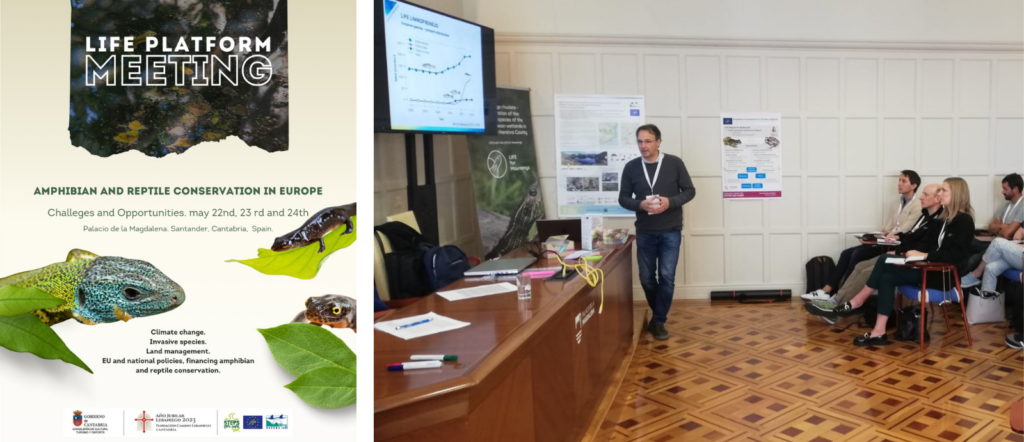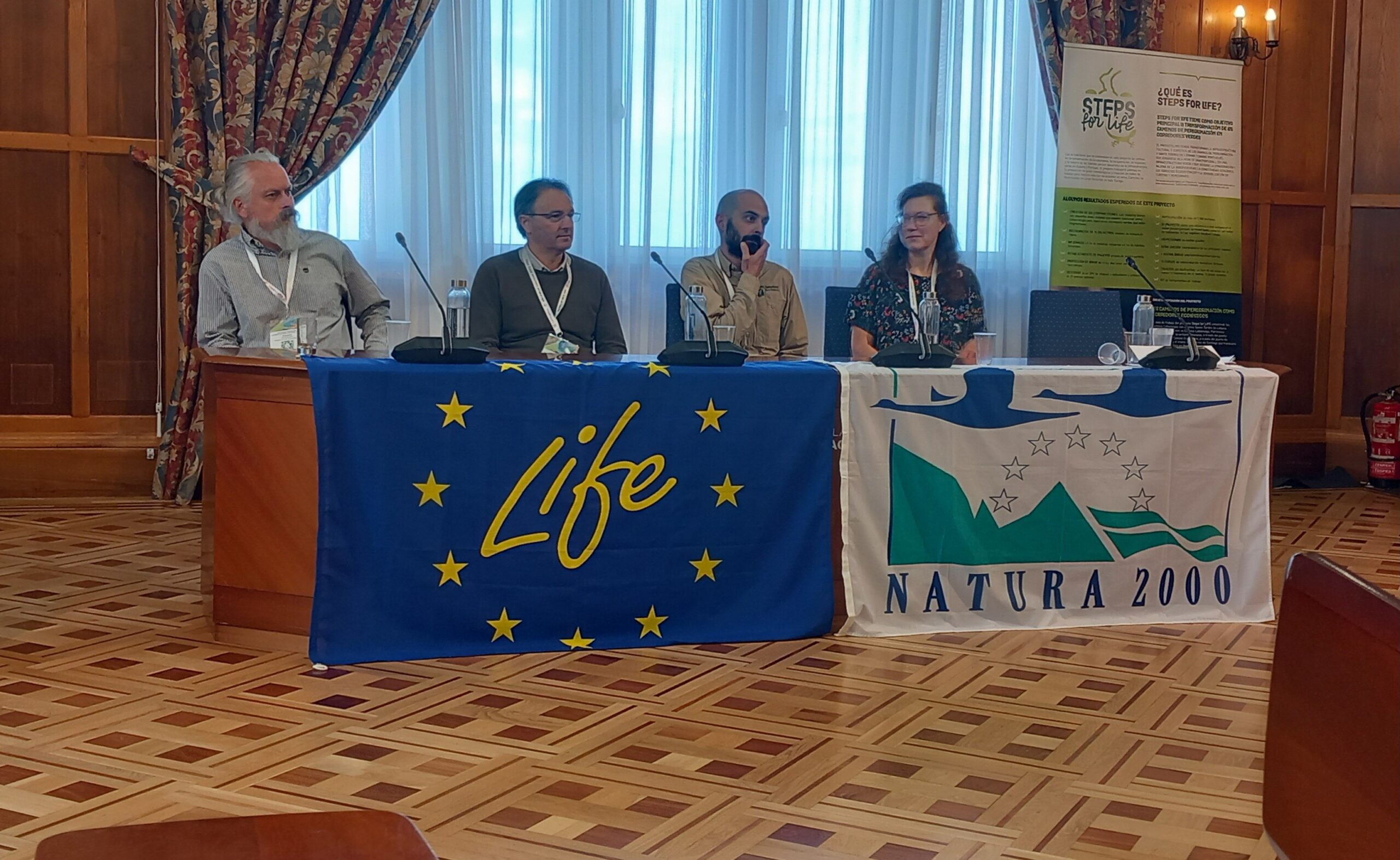A hundred national and international experts have addressed the challenges and opportunities regarding amphibian and reptile conservation in Europe within the framework of the ‘LIFE Platform Meeting: Amphibian & Reptile Conservation’.
The congress took place from May 22nd to 24th in Cantabria and was directed by the Camino Lebaniego Foundation, a public entity attached to the Ministry of Culture, Tourism, and Sports of the Government of Cantabria. This entity was selected by the European Commission to host this international meeting through the coordinating project: ‘Steps for life‘.
The event brought together experts from the LIFE Program throughout Europe, as well as over 25 LIFE projects and other European programs such as ‘Horizon 2020’ and ‘Biodiversa+’. Among the projects presented, the LIFE RESQUE ALPYR stood out.

The session allowed for the exchange of the latest methods and techniques to improve the conservation status of amphibians and reptiles and their habitats. The proposals arising from this summit will be sent to the General Directorate of the European Commission with the intention of incorporating them into European legislation regarding herpetofauna conservation.
Continental aquatic systems are scarce and sensitive environments where threatened species abound
The lakes and streams of the Pyrenees and the Alps, despite their remote location, suffer from anthropogenic disturbances that threaten their conservation. The massive introduction of exotic species, especially fish such as trout or minnow, is considered one of the main threats in these originally fishless high-mountain ecosystems.
Within the framework of the LIFE LIMNOPIRINEUS (2014-2019) and LIFE RESQUE ALPYR (2022-2026) projects, efforts are being made to improve the conservation status of European-interest aquatic species and habitats in the high mountains of the Pyrenees and the Alps (only in the second project).
The target species in these projects include some amphibians and mammals that feed in the aquatic environment, such as several species of bats.
Amphibians quickly colonize restored ecosystems
The results obtained in the LIFE LIMNOPIRINEUS have shown that the eradication of salmonids and charr is feasible and recommended compared to population control. Planned actions in the LIFE RESQUE ALPYR include the application of eradication protocols in lakes of greater complexity in the Pyrenees and their transfer to lakes in the Italian Alps.
“The results obtained so far show that amphibians quickly colonize restored ecosystems, especially when there are nearby refuges,” explains researcher Marc Ventura, project coordinator.
Additionally, he adds that fishing control and the dissemination of its negative effects on these ecosystems are the most urgent and recommended measures to improve conservation in these environments.

What is the LIFE Program?
The LIFE Program is the European Union’s only financial instrument exclusively dedicated to the environment and climate action, and the implementation of the European Green Deal.




